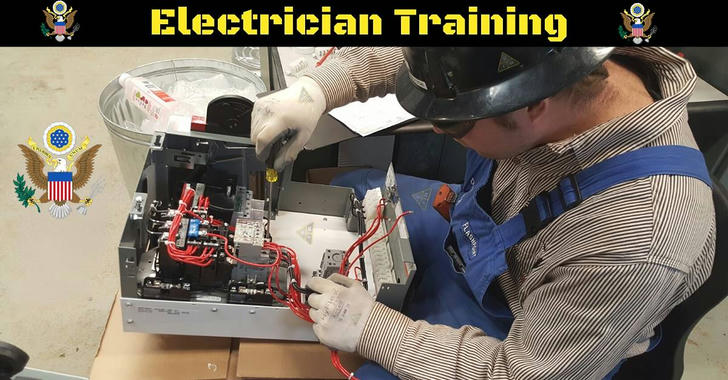How Government-Funded Paid Electrician Training Can Launch a High-Demand Career ✨
Government-funded electrical apprenticeship programs offer a unique opportunity to launch a promising career without the burden of college debt. These paid programs combine hands-on training with classroom instruction, allowing participants to earn money while learning essential skills.

📌 Understanding Government-Funded Electrician Apprenticeships: What You Need to Know
Government-funded electrician apprenticeships are structured, multi-year training programs certified by the Department of Labor. Key features include:
▪️ A blend of on-the-job experience and classroom learning
▪️ Coverage of electrical theory, safety, code compliance, and practical skills
This comprehensive approach equips apprentices with the expertise needed to succeed as professional electricians, with opportunities to advance to leadership or business ownership roles. These programs have national recognition and are aligned with state and federal workforce development initiatives, ensuring consistent quality across regions.
💡 The Benefits of Paid Apprenticeships: Earn While You Learn Without Debt
Government-Sponsored Training and Education Programs
Paid electrician apprenticeships offer significant advantages:
| Benefit | Description |
|---|---|
| Earn While Learning | Starting wages around $25/hour, progressing toward journeyman salaries averaging $67,810/year. |
| Debt-Free Education | Classroom costs are often subsidized or funded by employers or the state. |
🔧 Training, Curriculum, and Certification: Building Skills for a Successful Electrical Career
Apprenticeship training covers:
Electrical systems and blueprint reading
Safety protocols and National Electrical Code compliance
Specialized courses (fire alarm systems, communications, equipment installation)
Hands-on training is supervised by experienced journeymen, ensuring real-world experience. Upon completion, apprentices earn nationally recognized certifications and may pursue state licensing by passing exams testing electrical theory and code knowledge. This comprehensive curriculum prepares apprentices for diverse roles, from residential wiring to complex industrial systems.
📝 Eligibility Requirements and Application Process: How to Get Started in Your Region
Typical eligibility criteria include:
Minimum age of 18 years
High school diploma or GED
Basic employability skills and physical fitness (ability to work at heights, in various weather conditions, and handle heavy equipment)
Reliable transportation and teamwork capability
Application steps:
Submit interest forms to local apprenticeship chapters or sponsors
Participate in interviews and assessments to confirm program suitability
Some programs allow younger candidates with parental approval or offer preparatory skill development
These processes ensure candidates meet the standards required for success.
📈 Career Outlook and Advancement: Exploring Salary Potential and Long-Term Opportunities
The electrical trade offers strong job security and growth:
Projected job growth of 6% to 11% over the next decade, about twice the average for all occupations
Over 80,000 annual job openings nationwide due to retirements and career changes
Salaries ranging roughly from $55,000 to over $70,000 depending on region and experience
Frequently Asked Questions (FAQs)
Q1: Who is eligible to apply for government-funded electrician training?
Most programs are open to unemployed individuals, recent graduates, or workers seeking retraining, especially those approved under WIOA or similar state grants.
Q2: Is the training fully paid or partially subsidized?
Yes. Participants receive a training stipend or hourly wage while tuition and materials are covered by government grants or employer sponsorships.
Q3: How long does the training take?
Programs typically last 6 months to 1 years, depending on whether it’s a pre-apprenticeship or registered apprenticeship.
Q4: Will I get a certification after completion?
Yes. Graduates receive industry-recognized electrician certification, often qualifying them to take state licensing exams.
Q5: Are there job placements after training?
Most programs include guaranteed employment placement with partner companies or unions upon successful completion.
